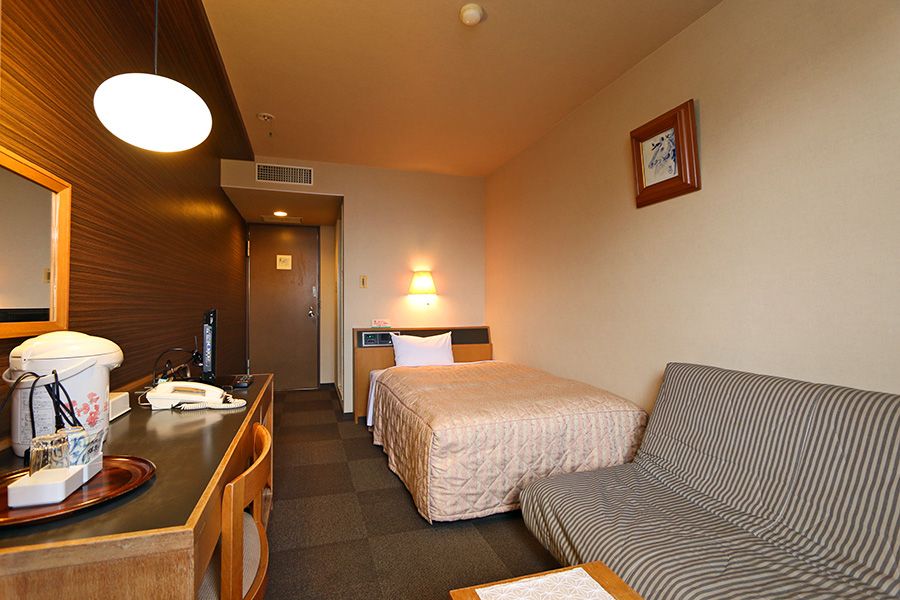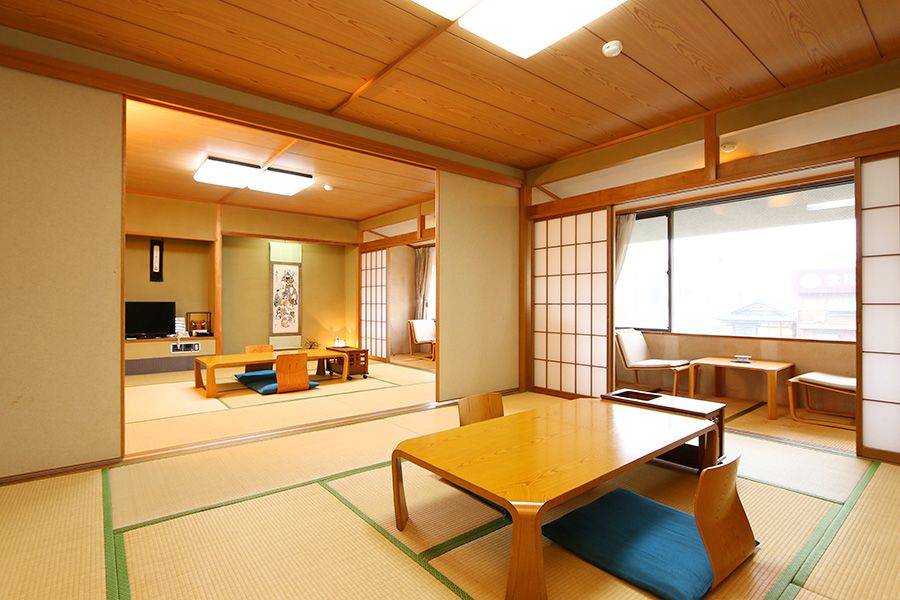Exploring Japan’s National Holidays: Kenpō Kinenbi and More!
Japan, with its rich cultural heritage, is a land where tradition meets modernity. Among the many holidays celebrated, Kenpō Kinenbi stands out as a day that not only honors Japan’s Constitution but also embodies the nation’s commitment to peace and democratic values. In this article, we will explore Kenpō Kinenbi, its significance, and how this holiday fits into Japan’s larger tapestry of cultural celebrations. Yoshida Hotel invites you to join us on this fascinating journey through Japan’s national holidays!
Understanding Kenpō Kinenbi: A Glimpse Into Japan’s Constitution Day
Kenpō Kinenbi, known as Constitution Memorial Day, is observed annually on May 3rd. This day commemorates the promulgation of the post-war constitution of Japan, which took effect in 1947. Kenpō Kinenbi is a day that not only highlights Japan’s dedication to democracy but also serves as a reminder of the country’s commitment to peace.
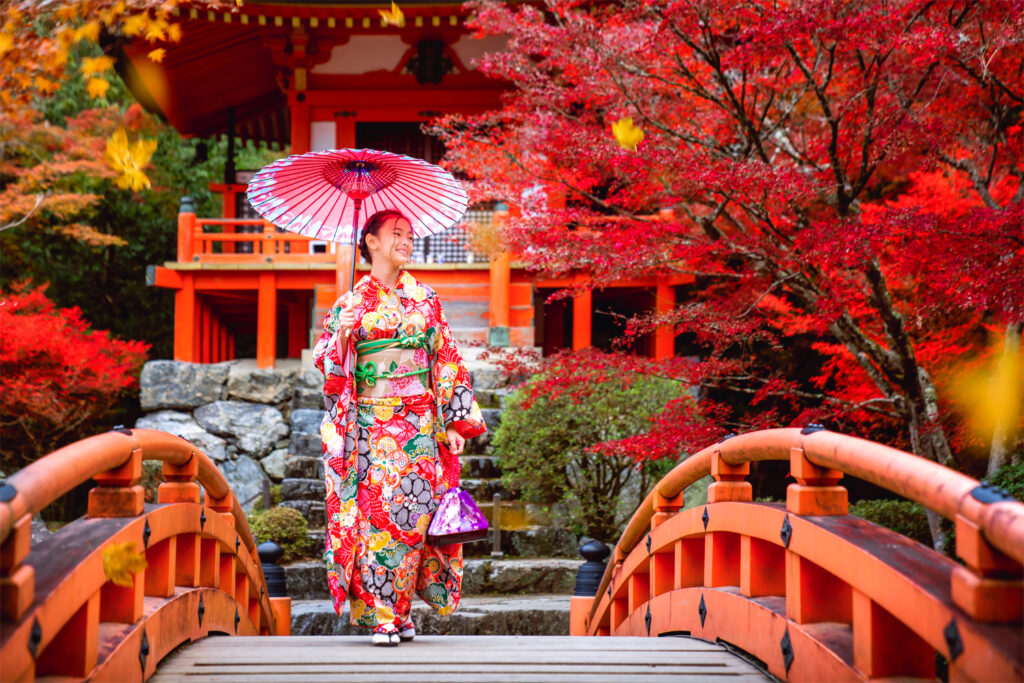
The holiday is marked by various activities, including ceremonies and educational programs, which reflect on the importance of the constitution in shaping modern Japan. While the focus is on constitutional matters, it is also a time for the people of Japan to appreciate the freedoms and rights they enjoy today.
At Yoshida Hotel, we take pride in presenting this significant day, giving you a chance to reflect on its importance as you enjoy your stay in Japan.
The Role of Kenpō Kinenbi in Japan’s National Holidays
Japan’s national holidays are spread throughout the year, and Kenpō Kinenbi plays a pivotal role in the country’s spring celebrations. It is part of the Golden Week, a collection of holidays that includes Showa Day, Constitution Day, Greenery Day, and Children’s Day. During this period, people often take vacations, spend time with family, or travel to tourist destinations.

Why Kenpō Kinenbi is Important to the People of Japan
The observance of Kenpō Kinenbi highlights Japan’s historical and political evolution after World War II. It marks the day when Japan embraced democratic ideals and established a constitution that prioritizes human rights and peace.
For the Japanese people, Kenpō Kinenbi is not just a reminder of their past but also an opportunity to reflect on the importance of a peaceful future. This day allows citizens to appreciate their constitutional rights, such as freedom of speech, assembly, and religion, and it is celebrated with a deep sense of respect for these values.
The Cultural Significance of Kenpō Kinenbi in Modern Japan
A Time of Reflection: What Does Kenpō Kinenbi Mean Today?
While Kenpō Kinenbi originally focused on the political and legal aspects of Japan’s constitution, it has evolved over time to become a day of national reflection. Schools, universities, and governmental bodies often hold discussions and events that explore the constitution’s impact on Japanese society and the world.
During Kenpō Kinenbi, the public is encouraged to think about the constitutional principles of peace, justice, and equality. It is a chance to engage in conversations about the nation’s laws, its democratic structures, and the rights afforded to individuals in the country.

Kenpō Kinenbi and the Rise of Modern-Day Japan
The post-war constitution was pivotal in transforming Japan into a peaceful, democratic nation. Kenpō Kinenbi serves as a symbol of this transformation and as a celebration of the peace that Japan has maintained for decades.
The Constitution Day festivities often focus on historical reflection, educational events, and social discussions that reinforce the importance of upholding democratic principles in modern society.
Other Major National Holidays in Japan
Japan’s holiday calendar is filled with significant dates, each with its own cultural and historical meaning. Let’s take a look at some of the most important holidays celebrated across the country.
1. New Year (Shōgatsu)
New Year’s Day, or Shōgatsu, is one of Japan’s most celebrated holidays. The period from January 1st to January 3rd is considered sacred, with many people returning to their hometowns to celebrate with family. Traditional activities such as Hatsumode (the first shrine visit of the year) and eating special New Year foods like osechi are common during this time.

2. The Showa Day (Shōwa no Hi)
Showa Day is celebrated on April 29th and marks the birthday of Emperor Shōwa (Hirohito), who ruled Japan from 1926 to 1989. This day is part of the Golden Week and is dedicated to reflecting on the Showa period, a time of great political, economic, and social change in Japan.
3. Greenery Day (Midori no Hi)
Celebrated on May 4th, Midori no Hi encourages people to appreciate the beauty of nature. The holiday honors the environment and fosters an appreciation for the natural world. People often visit parks, forests, and other outdoor areas to celebrate the day.
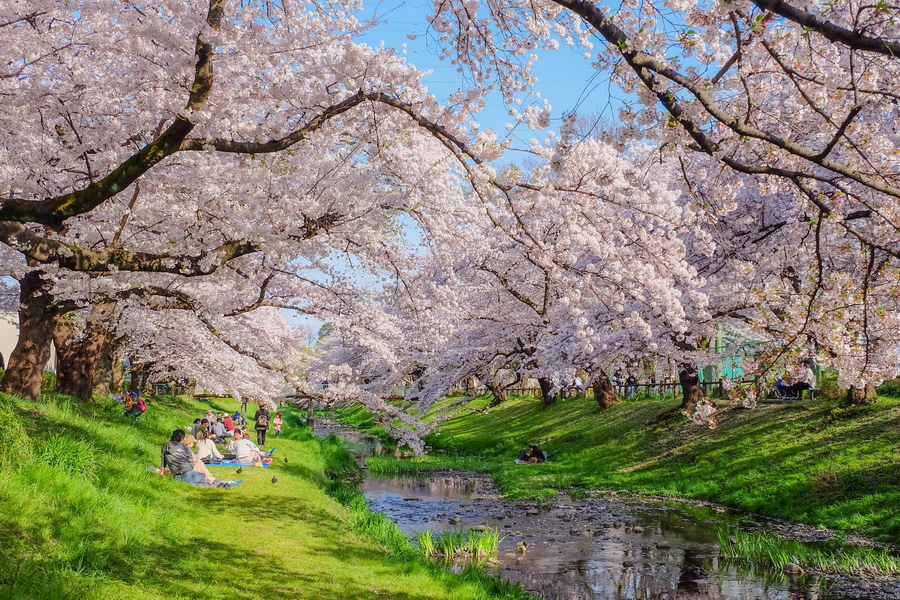
4. Children’s Day (Kodomo no Hi)
Held on May 5th, Kodomo no Hi is a day to celebrate children and their well-being. Traditionally, families hang up koinobori (carp-shaped flags) and display samurai helmets, symbolizing strength and vitality. It’s a day dedicated to wishing for the healthy growth of children.
5. Obon
Obon is a Buddhist event celebrated in mid-August, honoring the spirits of ancestors. It is a time when families come together to clean and decorate ancestral graves, and it is believed that the spirits of the dead return to their homes during this period.

6. Respect for the Aged Day (Keiro no Hi)
Held on the third Monday of September, Keiro no Hi is a day to honor elderly citizens. The holiday reflects Japan’s respect for its senior citizens and acknowledges their contributions to society.
7. The Emperor’s Birthday (Tenno Tanjobi)
On December 23rd, Japan celebrates the birthday of the Emperor. This day is marked by ceremonies at the Imperial Palace, where the emperor appears before the public, and people come to offer their well wishes.
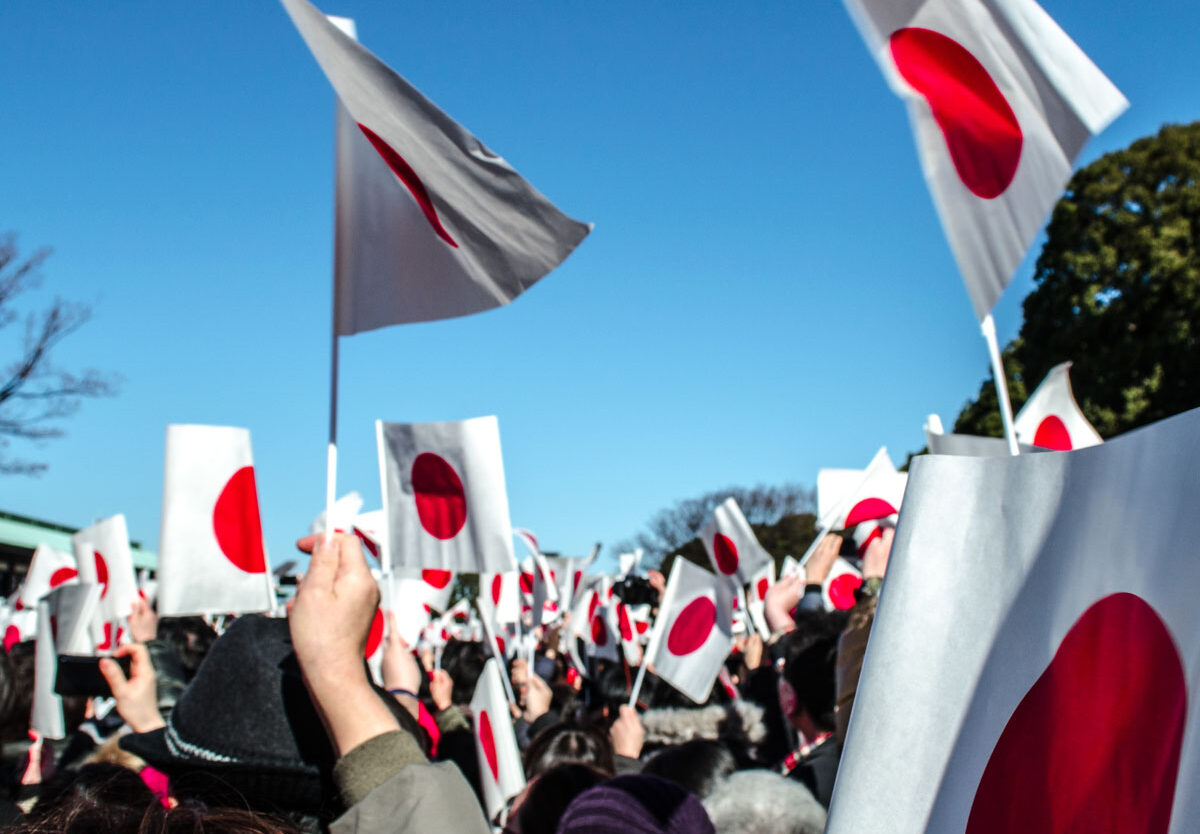
Top Hotels to Stay in Japan During National Holidays
If you’re planning a visit to Japan during one of its national holidays, consider staying at one of these highly recommended hotels. From historical locations to luxurious modern amenities, these hotels offer an unforgettable experience for any traveler.
KAYA Kyoto Nijo Castle, BW Signature Collection by Best Western
Address: 〒604-0071 Kyoto, Nakagyo Ward, Daimonjicho, 50番
Phone: +81 75-223-0606
A beautiful fusion of tradition and modernity, KAYA Kyoto Nijo Castle offers a serene atmosphere right near the Nijo Castle. Enjoy the best of both worlds as you explore the rich history of Kyoto and relax in a luxury hotel.
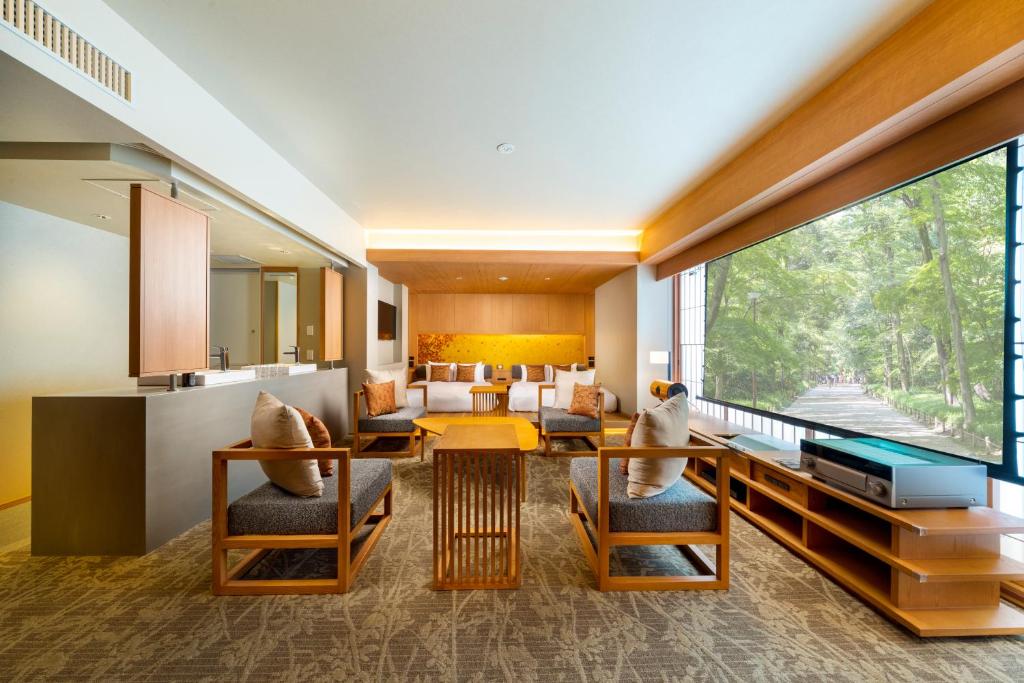
Gion Elite Terrace
Address: 44-21 Bishamoncho, Higashiyama Ward, Kyoto, 605-0812, Japan
Phone: +81 75-746-2188
Located in the historic Gion district, this boutique hotel provides an intimate and luxurious experience. Perfect for those wishing to stay close to Kyoto’s traditional landmarks, it offers top-notch services and unique accommodations.

Henn na Hotel Premier Kyoto Eki Hachijoguchimae
Address: 〒601-8004 Kyoto, Minami Ward, Higashikujo Higashisannocho, 15
Phone: +81 50-5576-8390
Known for its cutting-edge technology, the Henn na Hotel Premier Kyoto combines innovation with traditional Japanese aesthetics. A great choice for those who want to experience a modern, yet cultural, stay in Kyoto.
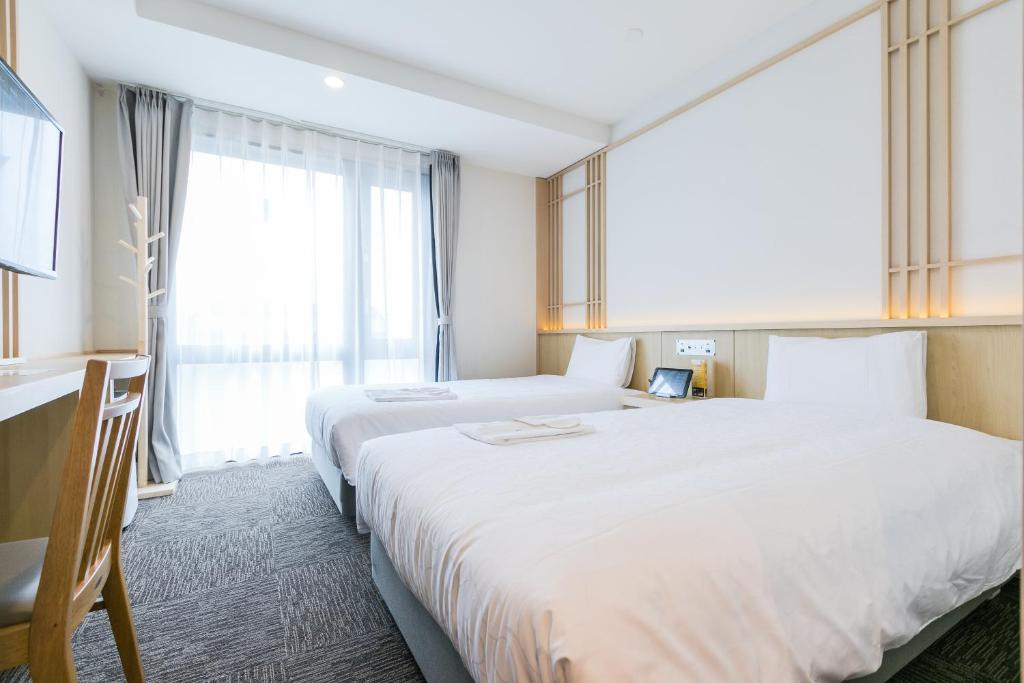
KOKO HOTEL Kyoto Sanjo – Formerly Hotel Wing International Premium Kyoto Sanjo
Address: 407-6 Wakokucho, Sakyo Ward, Kyoto, 606-8363, Japan
Phone: +81 75-761-1000
Conveniently located near Kyoto’s central shopping district, KOKO Hotel offers a chic and comfortable place to stay. Ideal for tourists, it’s just a short walk from popular attractions like the Nijo Castle and the Kinkaku-ji temple.
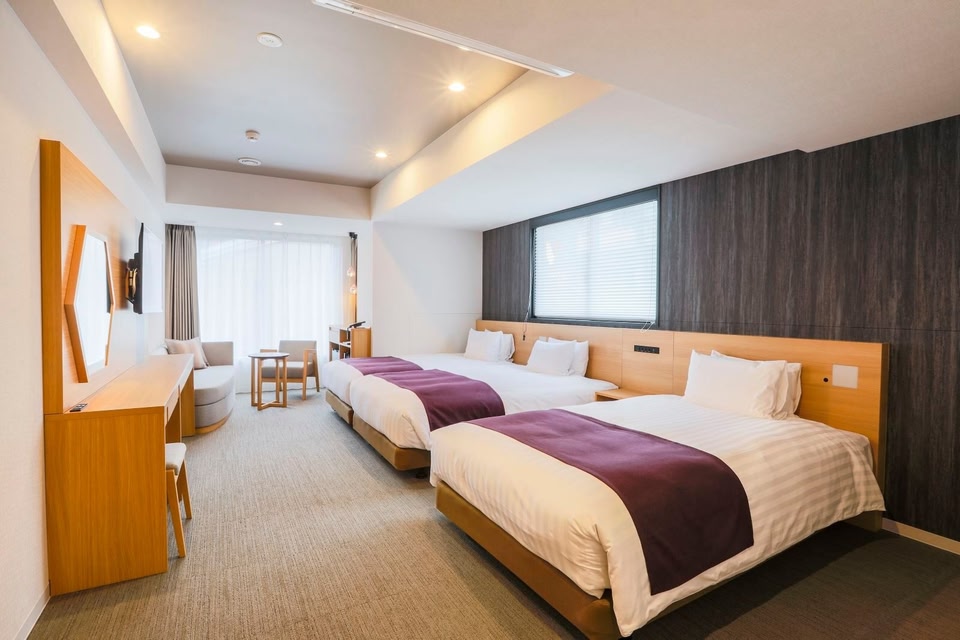
Henn na Hotel Premier Kyoto Gojo Karasuma – Formerly Watermark Hotel Kyoto
Address: 195 Daikokucho, Shimogyo Ward, Kyoto, 600-8161, Japan
Phone: +81 50-5210-5333
Offering a unique blend of technology and comfort, this hotel provides a futuristic experience with its robot staff. It’s a great option for tech enthusiasts and anyone seeking a modern yet traditional Kyoto experience.
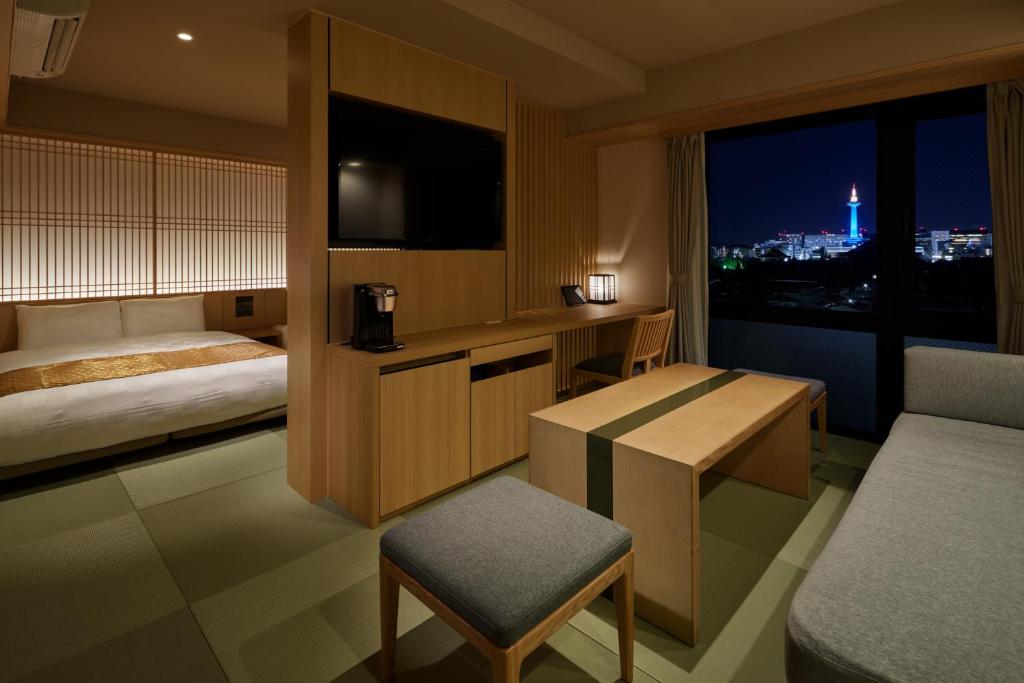
Mitsui Garden Hotel Kyoto Station
Address: 848番 Higashishiokojicho, Shimogyo Ward, Kyoto, 600-8216, Japan
Phone: +81 75-353-3135
Situated near Kyoto Station, this hotel provides easy access to transportation, making it perfect for travelers who want to explore the city and beyond. With luxurious amenities and attentive service, it promises a comfortable stay.
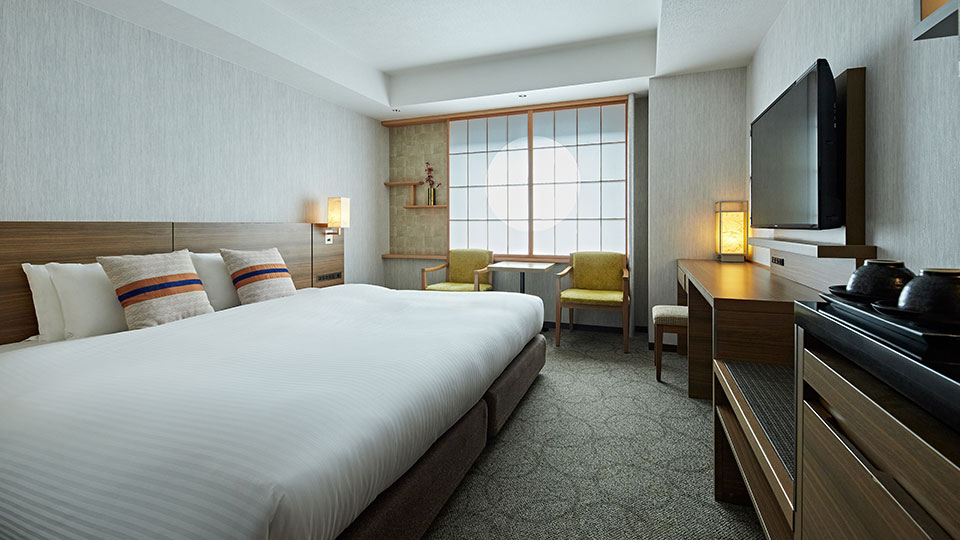
MONday Apart Premium KYOTO Station
Address: 1 Yaoyacho, Shimogyo Ward, Kyoto, 600-8262, Japan
Phone: +81 75-353-1922
Offering apartment-style accommodations, MONday Apart is perfect for those who want the convenience of a hotel with the flexibility of self-catering. A great choice for families and long-term travelers.

Conclusion
As we journey through Japan’s national holidays, Kenpō Kinenbi stands out as a symbol of Japan’s commitment to peace, democracy, and its rich historical legacy. At Yoshida Hotel, we hope this article provides you with an in-depth understanding of this important holiday and inspires you to explore Japan’s cultural treasures. Whether you are visiting during Golden Week or another time of year, Japan offers a multitude of experiences to enjoy and cherish.
Details
Namistay chain hotel
- 61-63 Hoang Ke Viem, Bac My Phu, Ngu Hanh Son, Da Nang, Vietnam
- Hotline: 0905 432 992
- Lot 45 An Thuong 29, Bac My Phu, Ngu Hanh Son, Da Nang, Vietnam
- Hotline: 0977 455 546
- 42 An Thuong 26 Street, Bac My Phu, Ngu Hanh Son, Da Nang, Vietnam
- Hotline: 0965 442 842
